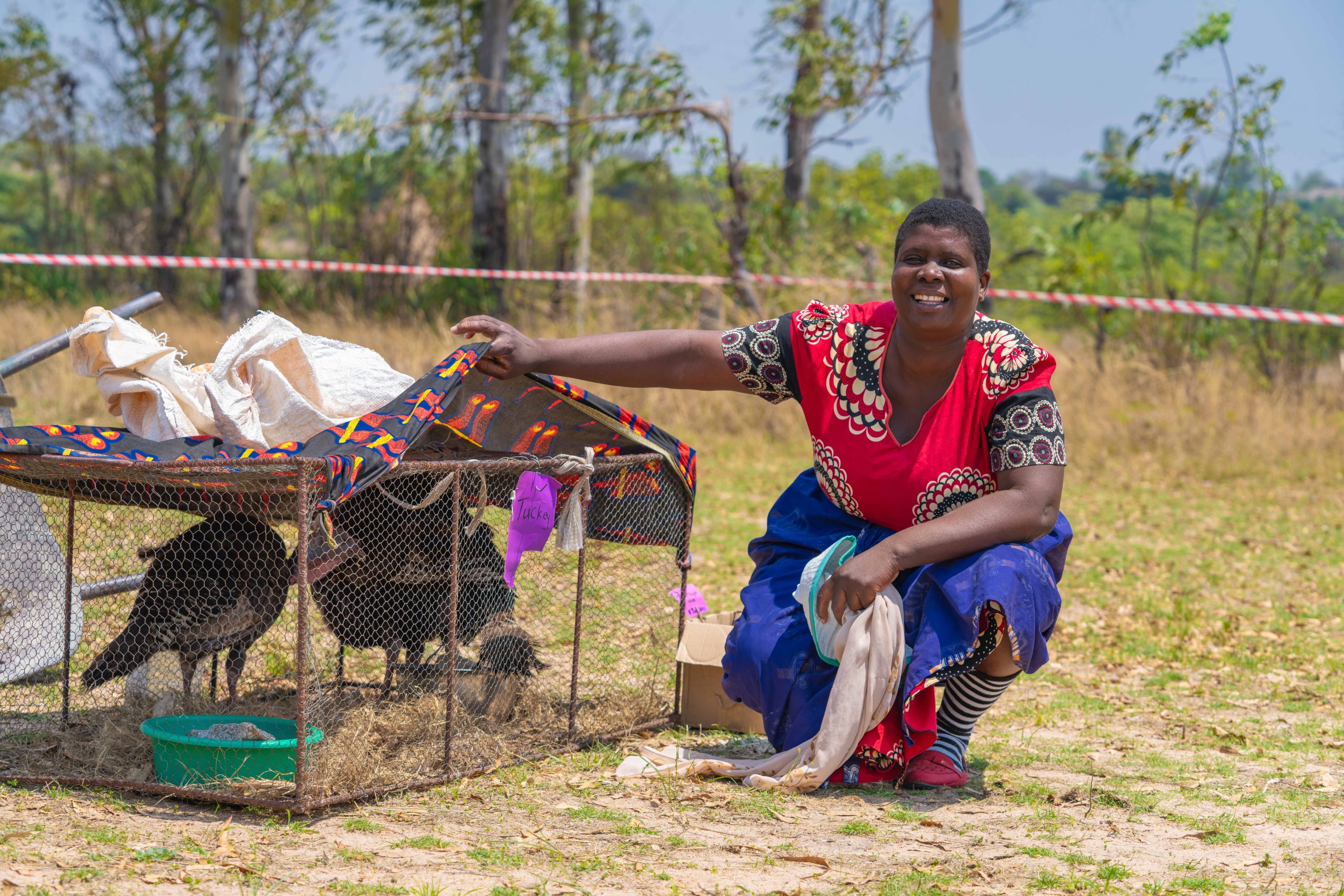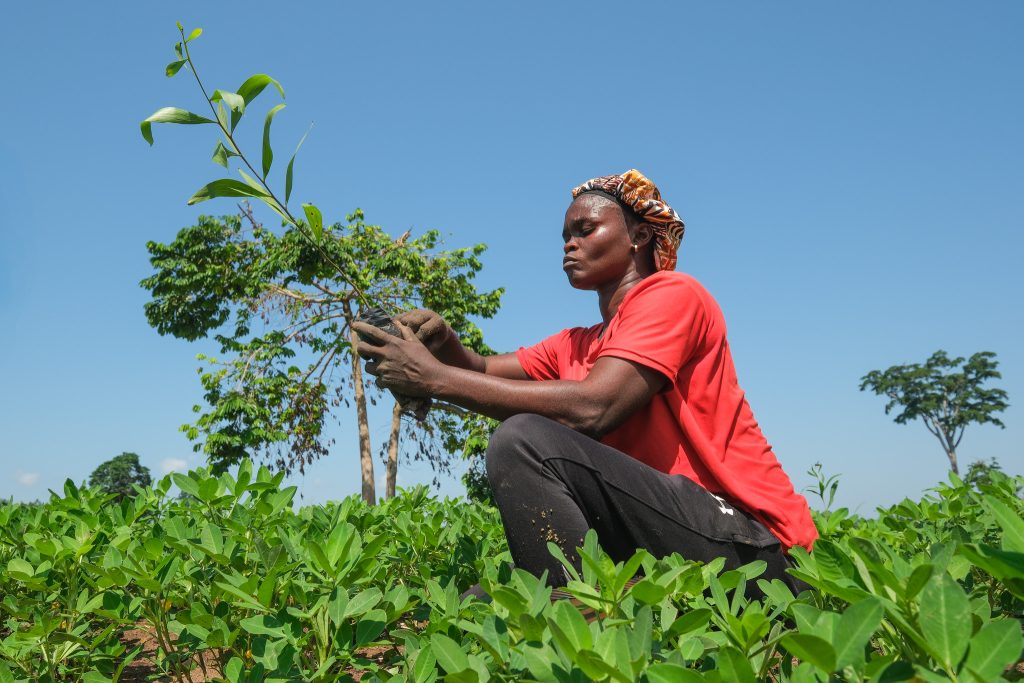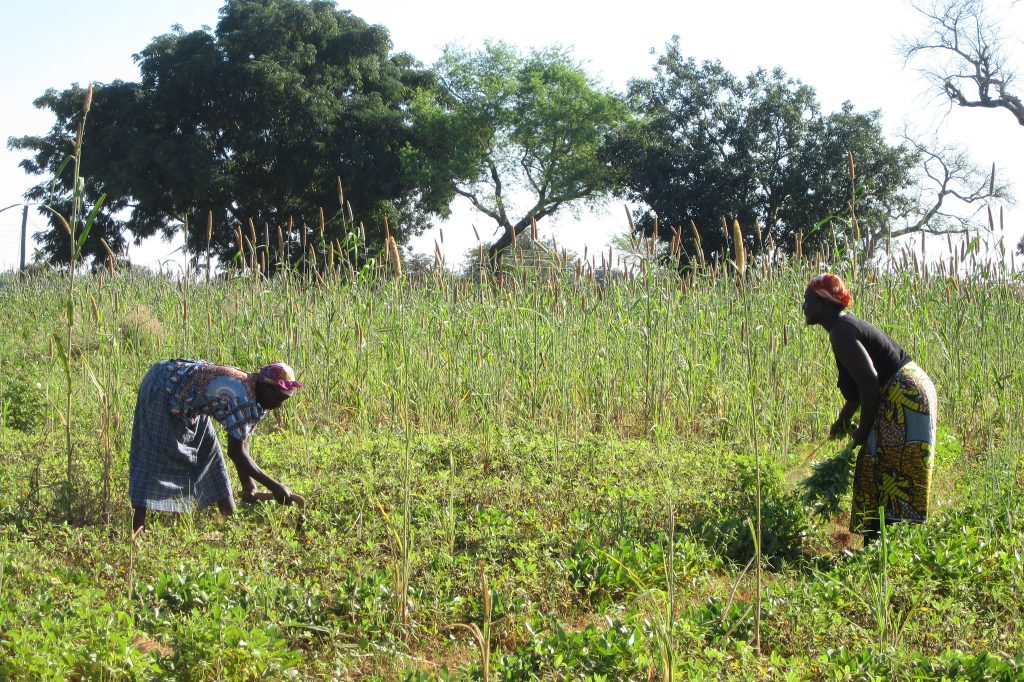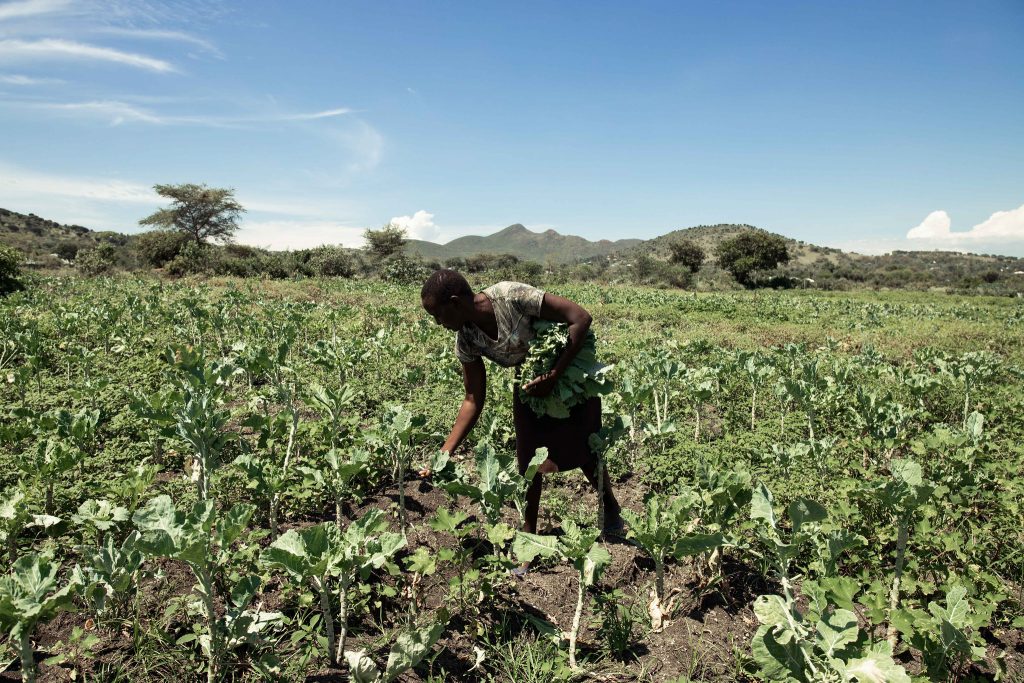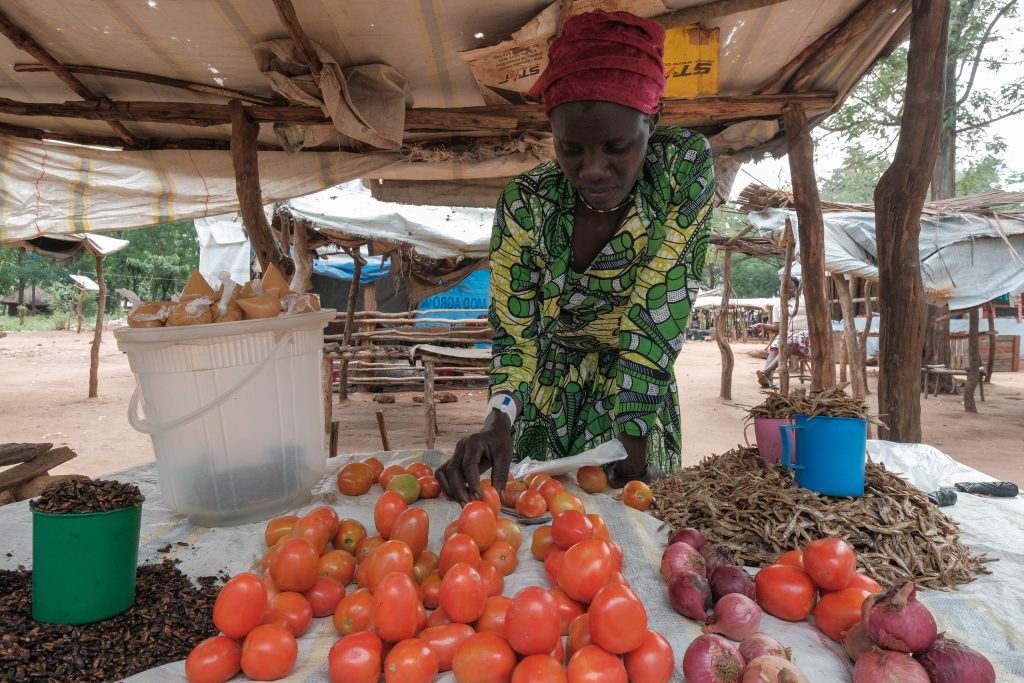Introduction
The Multifunctional Landscapes Science Program (MFL SP) brings an innovative approach to the array of interconnected challenges that arise from and impact today’s agri-food systems. If current patterns of unsustainable production and consumption persist, global food production will have to increase by as much as 70% to feed a global population of 9.8 billion people by 2050. Without profound change in agri-food systems, an increase of such magnitude will greatly worsen the damage resulting from these systems, which already account for 80% of deforestation and two-thirds of ocean pollution, while degrading 85% of wetlands and threatening more than a million plant and animal species with extinction.
The MFL Science Program plays a critical role in the CGIAR Research Portfolio 2025-2030. The Program seeks to transform agri-food systems, making them sustainable and equitable, through a major shift toward agroecological, nature-positive and regenerative practices.
This Program builds on a system-based understanding of landscapes as complex, interlinked social-ecological systems. Co-creating solutions with rural communities and the broader society requires an integrated research approach that goes beyond individual innovations applied in piecemeal fashion. Such an approach must instead be centered on multifunctional landscapes, which encompass not only agricultural land but the surrounding natural ecosystems, including aquatic ecosystems. This approach takes a source-to-sea perspective, which views land, fresh water and oceans as a connected system. The sustainable management of this system aims to reconcile economic development with the management of water and other natural resources, contributing to better livelihoods, healthier diets and heightened resilience in the face of climate change impacts and other pressures.
Aim
The vision of the MFL SP is to support the development of healthy, biodiverse, productive, low-emission, and resilient landscapes and livelihoods by optimizing the interplay between conservation, restoration, sustainable and equitable production, and equitable, healthy, and sustainable consumption.
It pursues its integrated approach through transdisciplinary, collaborative research in seven interlocking areas.
- Agroecological, nature-positive, regenerative, and nutrition-sensitive landscape-level solution bundles
- Multi-scale, inclusive, and adaptive planning, integration and governance
- Leveraging markets, business models and financing mechanisms
- Enabling institutions and policies
- Evidence-based performance assessment
- Fairness, gender equality and social inclusion
- Global engagement, advocacy and learning
Our work contributes to:
- Feeding 9.8 billion people by 2050 sustainably
- Stopping biodiversity loss of 34% of plant & 48% of animal species
- Attaining US$125-140 trillion in yearly economic benefits
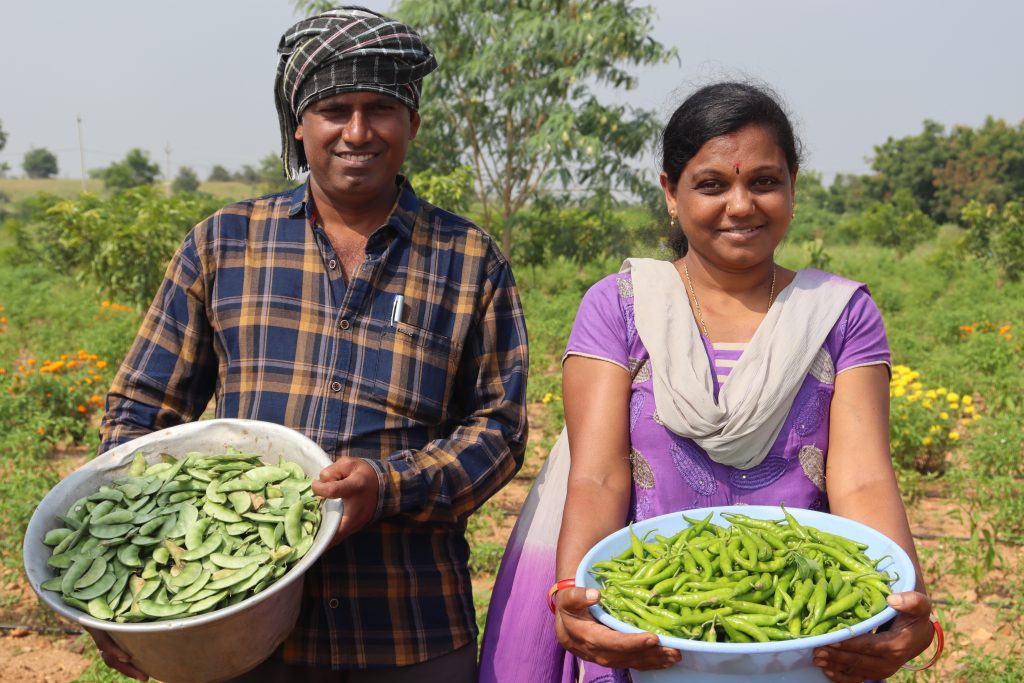
Value of Alignment with the TPP
This alignment supports the TPP’s mission to accelerate agroecological transitions toward more sustainable agricultural and food systems, while providing the MFL SP the opportunity to engage with initiatives beyond CGIAR and exchange lessons, and cooperate to close the remaining knowledge and action gaps for and in agroecological transitions at scale.
Including the TPP in the advisory mechanisms of the MFL SP, and vice versa
To support connectivity between the agroecology knowledge and practice coming from non-CGIAR initiatives, the CGIAR MFL SP envisions establishing an external advisory group comprised of esteemed global experts. This group will provide strategic guidance and oversight, enriching the program with diverse insights. We plan to consult with TPP to finalize the composition, ensuring at least one TPP Steering Committee member’s inclusion. Similarly, the TPP Steering Committee will maintain CGIAR representation to ensure this two-way interaction between the TPP and the CGIAR MFL SP.
Alignment of MFL SP to TPP’s platform of projects for knowledge exchange and collaboration
We intend to engage with TPP leadership to map MFL SP as an aligned global program within the TPP framework. This alignment will support TPP’s pivotal role in the Program’s areas of work. To facilitate this integration, we will complete the necessary documentation and coordinate with the Program Management Unit (PMU) for further discussions.
In turn, the AE-TPP can contribute to the MFL SP in the following ways:
- Integrating Agroecological Principles
Embedding the 13 agroecological principles into MFL’s framework to guide implementation, monitoring, and adaptive management at site level and ensuring these principles are applied practically across landscapes.
- Supporting Collaborative Regional Stakeholder Engagement
Working with MFL leadership during inception to coordinate stakeholder engagement, align with AoW7 and the CoP on regional and global engagement, and ensure TPP participation and visibility in partner processes.
- Enhancing Knowledge Exchange under AoW7
Acting as a key platform for learning and collaboration among MFL sites and other TPP-linked projects, strengthening the international network of Agroecological Living Landscapes. Additionally, through shared learning events such as the International Forum on Agroecosystems Living Labs (IFALL) 2025, the TPP can promote co-learning, knowledge continuity, and network expansion.
Project Scope and Timeline
The MFL Science Program is a five-year program running from 2025-2030 and implemented across eight countries: Colombia, India, Kenya, Peru, Senegal, Tanzania, Tunisia, and Zimbabwe, as well as along the Cambodia-Laos PDR-Vietnam corridor.

Modality
- The Program works in 8 priority countries identified for their potential to generate high impact, through a living landscapes approach as learning platforms for broader replication and by employing action research methods in a bottom-up partnership strategy aimed at ensuring continuity and expansion of local engagement.
- The Program also relies heavily on other CGIAR Science Programs and Accelerators for delivery outputs.
- Agroecology principles will be guiding the monitoring and evaluation of the integrality of our approaches and collaborative research. The impact assessment strategy aims to gauge the outcomes of interventions in multifunctional landscapes at different levels, including individual farmers, organizations, market systems, and policies.
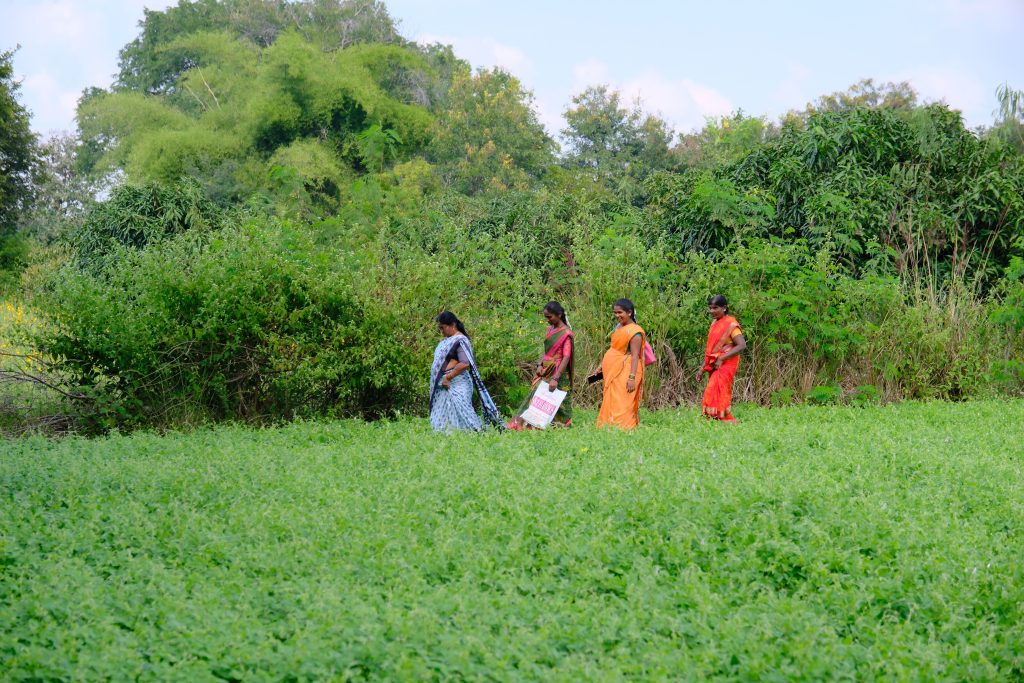
Partners
- Alliance Bioversity-CIAT
- Center for International Forestry Research and World Agroforestry (CIFOR-ICRAF)
- Centre de coopération internationale en recherche agronomique pour le développement (CIRAD)
- International Center for Agricultural Research in the Dry Areas (ICARDA)
- International Crops Research Institute for the Semi-Arid Tropics (ICRISAT)
- The International Food Policy Research Institute (IFPRI)
- International Institute of Tropical Agriculture (IITA)
- International Livestock Research Institute (ILRI)
- International Maize and Wheat Improvement Center (CIMMYT)
- International Potato Center (CIP)
- WorldFish Organization
Contacts
- Director: Desta, Lulseged (Alliance Bioversity-CIAT) LT.Desta@CGIAR.ORG
- Deputy Director: Schmidt, Jorn (WorldFish) J.Schmidt@cgiar.org
- Program Coordination: Staiger Rivas, Simone (Alliance Bioversity-CIAT) s.staiger@CGIAR.ORG
- MELIA: Blundo, Genowefa (Alliance Bioversity-CIAT) Genowefa.Blundo@cgiar.org
- Budgets, Finance, Partnerships: Vargas, Alejandra (Alliance Bioversity-CIAT) A.Vargas@cgiar.org
- Communications: Edward-Uwadiale, Gina (ILRI) G.Edward-Uwadiale@cgiar.org
Related Resources
CGIAR Multifunctional Landscapes Science Program webpage

